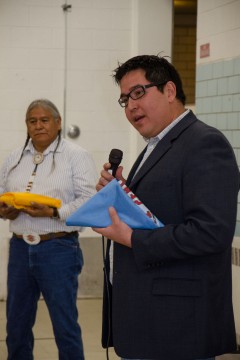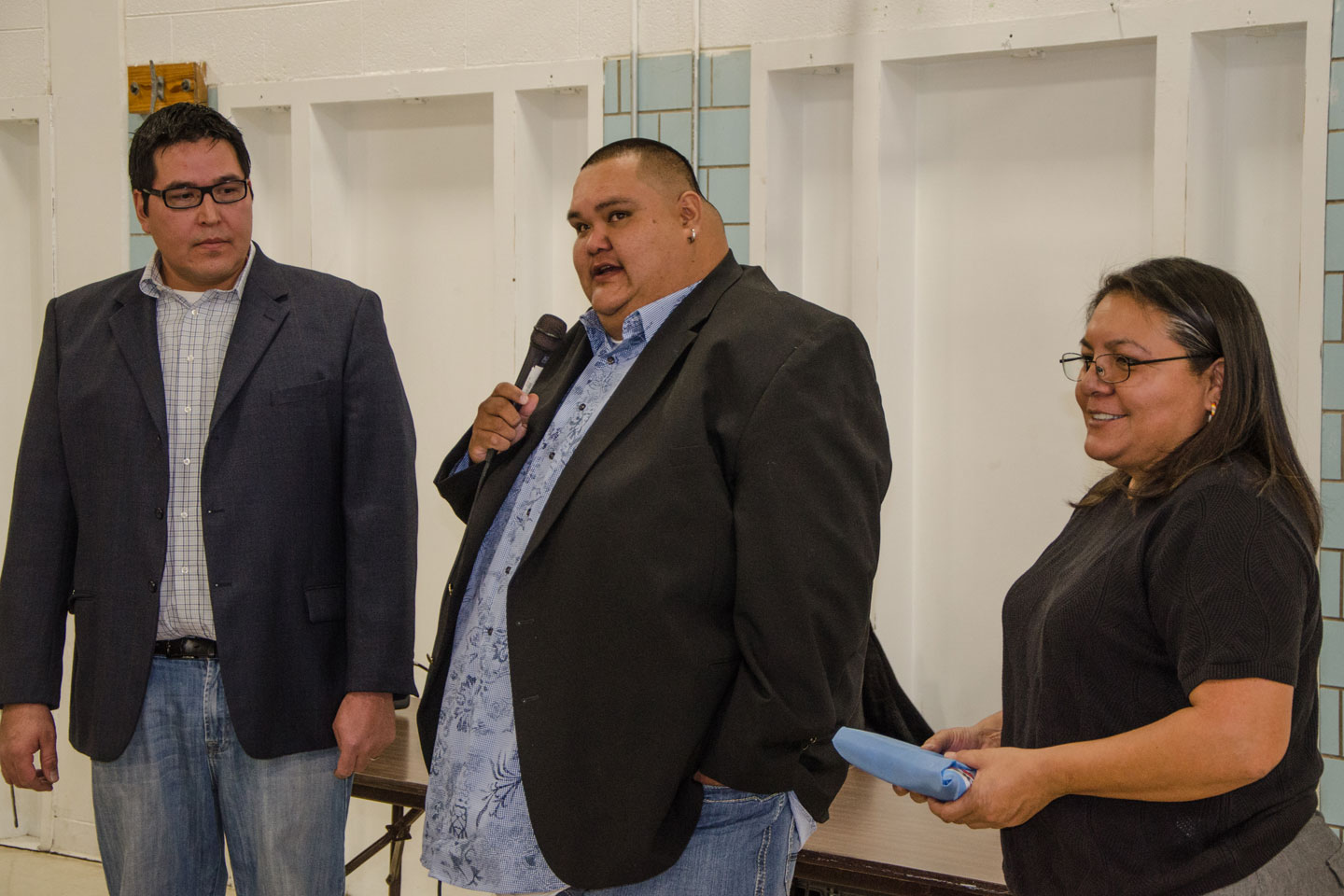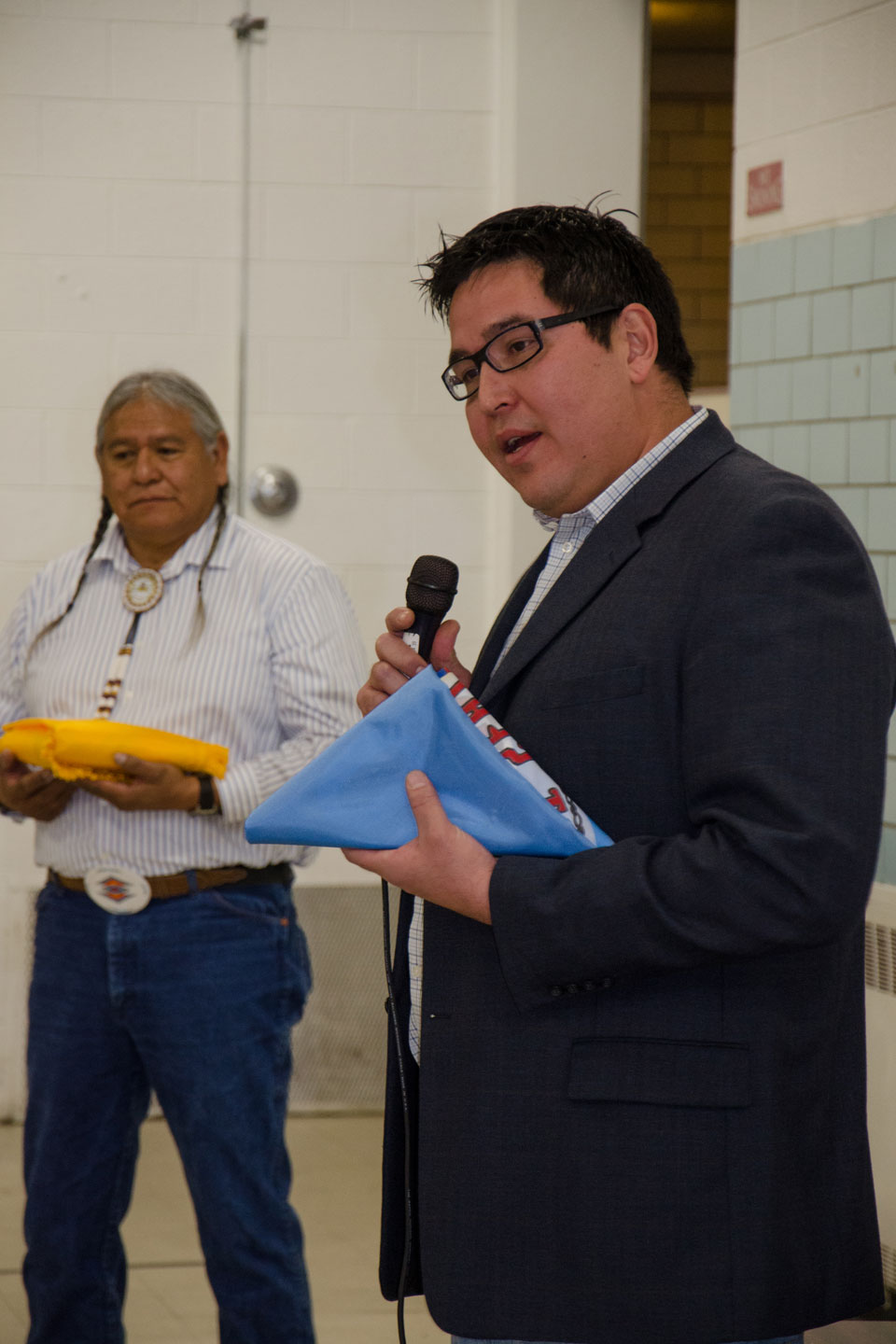Ute tribal leaders and Colorado state officials came together Nov. 29 and 30 in Denver to discuss tribal business and state-to-nation policies.
TRI-UTE COUNCIL
Kicking off the quarterly Tri-Ute Council meeting at the History Colorado Center was Northern Ute Indian Tribe Chairwoman Irene Cuch, who discussed water rights and Ute language preservation. Cuch highlighted the recent acquisition of an energy company, Ute Energy Midstream. The acquisition “fulfilled a longstanding dream of owning a Ute energy company,” Cuch said.
Southern Ute Chairman Jimmy R. Newton Jr. talked about the tribal takeover of the Southern Ute Health Center from the U.S. Bureau of Indian Affairs, giving an update on the process of converting the facility to tribal oversight.
“[We are] exploring options for health insurance for our tribal members, pros and cons,” Newton said.
Newton said keeping families together through the tribe’s Social Services Division has been a priority during his administration. He said the tribe must do everything possible to prevent parental terminations.
“As chairman, I don’t want to see that,” he said, adding that it’s important to keep the cultural component in social services.
Regarding the annual Tri-Ute Games, Newton raised the question of whether first-generation descendants should be allowed to compete alongside enrolled tribal members. The purpose of the games is to “unite” tribal youth, he said.
Also up for discussion was the ongoing challenge of tribal-member housing.
“One thing we need to focus on is tribal housing,” Newton said, suggesting the tribe should revamp its credit program to help tribal members get homes, better homes.
Discussing cultural preservation, Southern Ute Council Lady Joycelyn Dutchie said she was concerned that the old ways are not being passed on.
“In many ways, I guess the Ute culture is fading away,” she said. “Maybe the understanding of who you are and where we come from is not there.”
Announcing her upcoming departure from her council seat, Dutchie urged all Ute leaders to continue attending Tri-Ute meetings, to make the council stronger.
“There is a reason why we are coming together as a Tri-Ute [Council],” Dutchie said.
Newton then turned the conversation toward the budget committee and tribal-member employment, saying he’s been “pleased with [his] administration in increasing tribal-member employment even with the budget cuts.”
Tribal-member employment has increased 7 percent during his administration, he said.
“We are all collaborating on the tribal administration side,” said Executive Officer Steve R. Herrera Sr.
Southern Ute Cultural Preservation Department Director Elise Redd gave a cultural presentation. She emphasized cultural preservation and the Ute language — which today is spoken fluently by just 47 Southern Utes, she said.
Ute Mountain Ute closed out the meeting with its report, touching on budget cuts, education, Ute language, and the need for improved local Internet service.
Councilman Manuel Heart expressed hope for more action and follow-through on Tri-Ute discussions. He also encouraged cooperation among the three tribes and a blending of “Ute ways and the white man’s world.”
Chairman Gary Hayes announced a proclamation for a day in honor of the late Chairman Ernest House Sr.

CCIA
The Colorado Commission of Indian Affairs meeting took place Friday, Nov. 30. Colorado Lt. Gov. Joe Garcia and commission Executive Secretary Ernest House Jr. joined the Southern Ute and Ute Mountain Ute tribes for the meeting.
First up was Executive Director Jay Grimm of the Denver Indian Center, where the meeting took place. Grimm highlighted the success his center has found in the Denver community.
“We are really living and breathing it here,” he said. The center aims “to empower our youth, families and communities through self-determination, cultural identity and education.”
House opened by giving an update on the Fort Lewis College Native American tuition waiver, which allows Native American students to attend the school free of charge. Currently, Fort Lewis College is enrolling more Native American students than any other school, resulting in increased costs. Gov. John Hickenlooper is requesting additional funds to help fund the waiver.
Newton said it’s important that the waiver be preserved.
“I think it is very important to understand the history as to why there is a Native tuition waiver at Fort Lewis College,” Newton said.
The Southern Ute and Ute Mountain Ute tribes presented their flags to Grimm for display in the center’s large gymnasium. Hanging across the high walls were flags from dozens of North American tribes, including the Comanche Nation, Cheyenne River Sioux, Fort Peck and Chickasaw Nation.
Newton reminded House about a possible opportunity to create an internship position for a tribal member within the commission.
“We have not forgot about that gracious offer,” House said.
House also talked about the commission’s efforts to provide informational flyers about the Colorado Ute tribes to cultural centers and tourist attractions throughout the state. It’s important to raise awareness of the tribes’ history and presence in the state, he said.
There was discussion concerning standardizing the terms and conditions for agreements between the state and tribes.
“I think it is important that we are consistent,” Garcia said.
Hayes emphasized the economic impact created by the tribes tribes in southwest Colorado. The tribes are the No. 1 employers in the region, he said.
Following a presentation on the successes of the Ute Mountain Ute Tribe under the Native American Graves Protection and Repatriation Act, House thanked the tribe for its work.
“I can’t tell you how much of a process and how much of a blessing it is,” he said. “So thank you.”
Key points from Southern Ute included fostering a youth community through the Boys & Girls Club of the Southern Ute Indian Tribe; collaboration with local, state and federal authorities on the Ignacio Area Corridor Access Plan; tribal member scholarships; and government-to-government relations with the state.
“Continuing to have the best health care for our tribal members [is a priority],” Newton said.
The third quarterly meeting is set for March 21, 2013, coinciding with the Denver March Powwow.




